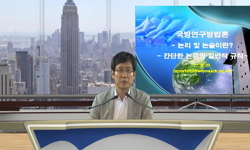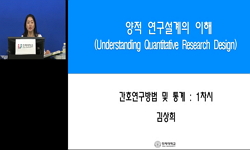This article explores Colombia’s Memory Museum as a form of non-formal peace education in a conflict-affected society. Since the 2016 peace agreement between the Colombian government and FARC, many initiatives have been established to foster reconci...
http://chineseinput.net/에서 pinyin(병음)방식으로 중국어를 변환할 수 있습니다.
변환된 중국어를 복사하여 사용하시면 됩니다.
- 中文 을 입력하시려면 zhongwen을 입력하시고 space를누르시면됩니다.
- 北京 을 입력하시려면 beijing을 입력하시고 space를 누르시면 됩니다.

Building a Culture of Peace through Non-Formal Education: The Case of Colombia's Memory Museum
한글로보기https://www.riss.kr/link?id=A108139393
-
저자
Ana Catalina Velasco (서울대학교) ; Kevin Kester (서울대학교)
- 발행기관
- 학술지명
- 권호사항
-
발행연도
2022
-
작성언어
English
- 주제어
-
등재정보
KCI등재
-
자료형태
학술저널
-
수록면
1-38(38쪽)
-
KCI 피인용횟수
0
- 제공처
-
0
상세조회 -
0
다운로드
부가정보
다국어 초록 (Multilingual Abstract)
This article explores Colombia’s Memory Museum as a form of non-formal peace education in a conflict-affected society. Since the 2016 peace agreement between the Colombian government and FARC, many initiatives have been established to foster reconciliation and sustainable peacebuilding. One such initiative is the Colombian Memory Museum. Through a qualitative case study approach involving in-depth interviews, document analysis and digital artefacts, this study explores the potential of the museum to contribute to building a culture of peace in Colombia. The study is guided by two questions: What possibilities can non-formal peace education strategies like Colombia’s Memory Museum offer to construct a culture of peace in conflict-affected settings like Colombia? What lessons could be learned from Colombia’s Memory Museum that might be useful for educators in other contexts facing conflict and division? Organized into five themes, findings indicate that the museum aligns with the construction of a culture of peace by helping in the rejection of violent conflict to solve differences, fostering self-reflection as a strategy to resist structural and cultural violence, promoting horizontality, presenting multiple views of reality, and working toward social justice in the form of symbolic reparation. It is expected that the analysis presented in this paper is meaningful for South Korean researchers and educators who aim to employ new forms of non-formal education to promote a more sustainable culture of peace.
분석정보
인용정보 인용지수 설명보기
학술지 이력
| 연월일 | 이력구분 | 이력상세 | 등재구분 |
|---|---|---|---|
| 2026 | 평가예정 | 재인증평가 신청대상 (재인증) | |
| 2020-01-01 | 평가 | 등재학술지 유지 (재인증) |  |
| 2017-01-01 | 평가 | 등재학술지 유지 (계속평가) |  |
| 2013-01-01 | 평가 | 등재학술지 유지 (등재유지) |  |
| 2010-01-01 | 평가 | 등재학술지 유지 (등재유지) |  |
| 2008-01-01 | 평가 | 등재학술지 유지 (등재유지) |  |
| 2005-01-01 | 평가 | 등재학술지 선정 (등재후보2차) |  |
| 2004-01-01 | 평가 | 등재후보 1차 PASS (등재후보1차) |  |
| 2003-01-01 | 평가 | 등재후보 1차 FAIL (등재후보1차) |  |
| 2001-07-01 | 평가 | 등재후보학술지 선정 (신규평가) |  |
학술지 인용정보
| 기준연도 | WOS-KCI 통합IF(2년) | KCIF(2년) | KCIF(3년) |
|---|---|---|---|
| 2016 | 0.79 | 0.79 | 0.98 |
| KCIF(4년) | KCIF(5년) | 중심성지수(3년) | 즉시성지수 |
| 0.91 | 0.94 | 1.28 | 0.26 |




 스콜라
스콜라






